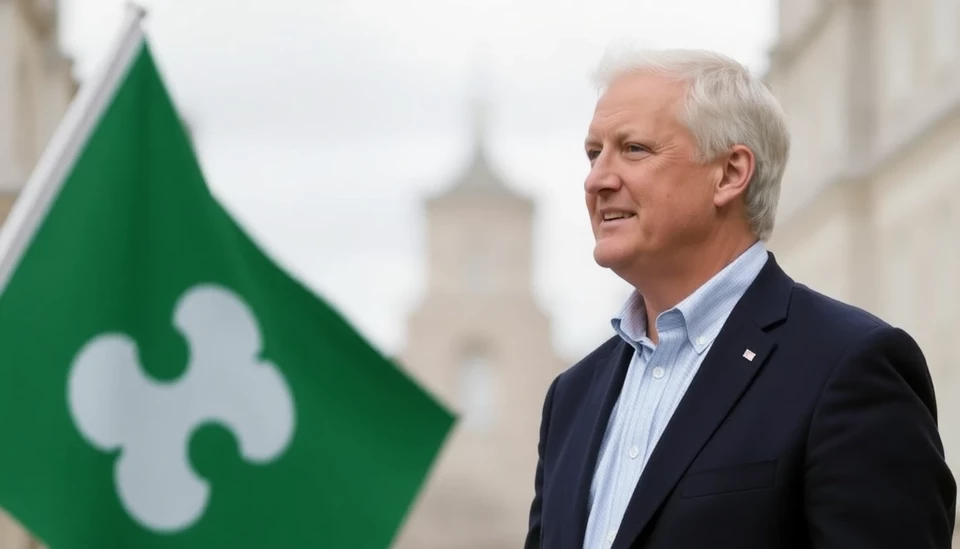
In an electrifying build-up to Ireland's approaching elections, the spotlight is firmly on the contentious issue of the Apple tax, which has emerged as a pivotal theme in the political arena. As the electoral race intensifies, candidates from various parties are not only grappling with the implications of the corporate tax policies but also engaging voters with eye-catching promises. The upcoming elections, characterized by fierce competition, are seeing a blend of political drama interwoven with economic concerns, culminating in a compelling narrative that captures the attention of the nation.
The backdrop of this fierce electoral battle is painted by the significant ruling from the European Union, mandating Apple to repay an astounding €13 billion in taxes. This decision has ignited a fiery debate among the candidates, who are eager to position their parties as champions of economic fairness. Critics argue that the ruling reveals systemic flaws in Ireland’s corporate tax structure, while supporters maintain that it jeopardizes the stability of the country’s economy, which heavily relies on foreign investments.
As the leading parties gear up for the elections, they have unveiled a series of ambitious promises aimed at winning the electorate's favor. The two largest political factions are pouring resources into campaigns that highlight their visions for economic growth, job creation, and the preservation of Ireland’s attractive corporate tax regime. This rivalry among parties reflects a nuanced understanding that the electorate is not only concerned about corporate taxation but also about broader economic stability and growth prospects.
Furthermore, the tightness of the race has led to an increase in populist sentiments. Voter discontent surrounding rising living costs and inadequate public services has been palpable. Candidates are increasingly utilizing social media and grassroots movements to engage with constituents, seeking to resonate with those feeling disenfranchised. As a result, traditional party lines are becoming blurred, and electoral strategies that emphasize relatable, everyday issues are popping up more frequently.
Adding to the tension, recent polls indicate that the election could result in a hung parliament, meaning no single party may secure an outright majority. This scenario could lead to intricate coalition negotiations post-election, complicating the landscape further. The unpredictability in voter turnout is bolstered by younger voters, who are more engaged than ever in political discussions, specifically regarding issues like climate change, healthcare reforms, and social equality.
As various candidates ramp up their campaigning efforts, we can expect to witness innovative strategies aimed at swaying undecided voters. Debates are likely to be fierce, with candidates exploring every angle of tax reforms and economic policy. The stakes couldn’t be higher, and the impact of this election will likely reverberate throughout Ireland and beyond, given the implications of the corporate tax policy on foreign investment and economic prosperity.
In summary, Ireland’s upcoming elections are set against a backdrop of significant economic pressures and complexities stemming from the Apple tax issue, making it an event of remarkable importance. With the possibility of a hung parliament looming and the electorate’s mood in flux, political parties must deliver compelling arguments and practical solutions to secure their positions in the government.
As the countdown to election day continues, all eyes remain on Ireland, eager to see how these political dynamics evolve and which promises can translate into tangible outcomes for the Irish people.
#IrelandElections #AppleTax #PoliticalRace #EconomicPolicy #CorporateTax #Voting2024 #IrishPolitics #Election2024
Author: Daniel Foster




